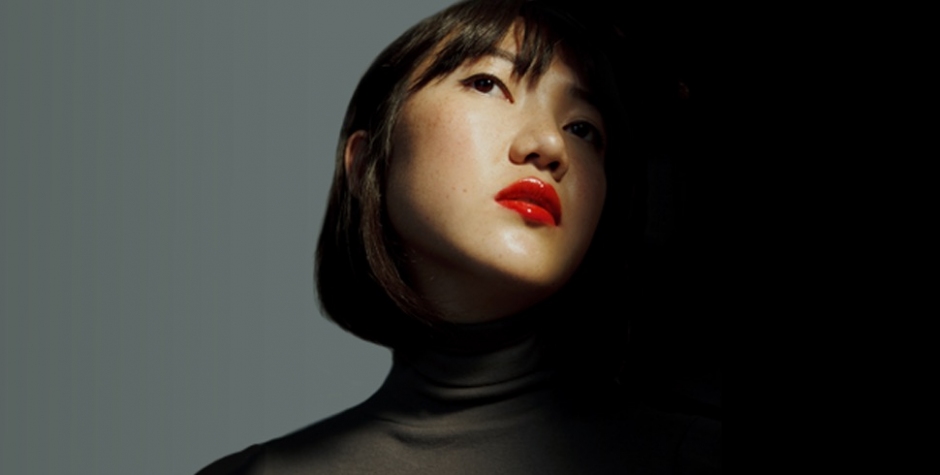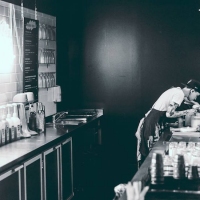 The Right Stuff #3 - #SaveOzStories The future of Australian stories is at risk and it’s up to us as readers to help save them.
The Right Stuff #3 - #SaveOzStories The future of Australian stories is at risk and it’s up to us as readers to help save them.

Rainbow Chan discusses her heritage ahead of her new album, Spacings
We talk with Rainbow Chan about her debut album and China.
Rainbow Chan has been releasing a slew new music ahead of the release of her debut record Spacings. We were lucky enough to speak with her about this, what's been happening since her EP Long Vacation alongside diving into the influence her Chinese heritage has had on her music. Spacings is out Friday August 26 and you can pre-order it HERE.
For many of your fans your debut EP Long Vacation captured their attention with tracks like Skinny Dipping and Haircut back in 2013 and now three years later your debut album Spacings is coming out. What has happened during this period? What have you been up to?
I've spent more time refining my work and production. I do a lot more listening and reading compared to 2013 because I realised the importance of being well-informed and open-minded when it comes to making new things. It's easy to get stuck in your own head when you're creating, but once you recognise the artistic lineage that existed before you, I think you become better attuned to everything around you.
Listening through to your debut record there seems to be a lot of focus lyrically on relationships, in particular Pillow Talk with lyrics like, ‘You’re not boyfriend material’. Can you explain where this stems from?
I went through a lot of personal growth like many people do in their early 20s. How clichéd! But I felt like my world was turned upside-down and the ideals and expectations I once had were destabilised. Although many of these songs are based on very real things that have happened to me or my friends, the lyrics often contain a bit of heightened drama.
Sonically, Spacings seems to lean on R&B elements with tracks like Last really standing out. But you’ve also cited J-pop and more generally East-Asia as a big sonic influence, can you explain how this works into your music?
When I moved to Australia from Hong Kong in the 90s, I brought along a few tapes and videos of Cantopop songs and animes. That box was like a time capsule from my “home” that I would watch a lot. So I realise now, the sounds and visuals of these cultural artifacts have influenced me from a young age, by offering a link to my heritage. There are elements in the vocals and synth melodies in my music that nod to those nostalgic references.
On top of that I know sampling is another important part of your work, indeed in an interview with Lip Mag you linked it with death and trying to capture a moment in time before it ends. Can you expand on this?
The idea of capturing and documenting something is important for me. The more I face mortality, the more I feel compelled to make and shape meaning in various forms. Sound is ephemeral and temporal by nature so I feel the act of recording a sound is somehow defying time and decay. On this album, there are several field-recordings that are subtly embedded in the songs, which are little diary entries for me.
Furthermore, I’ve read in interviews how you talked about wanting to assimilate into Australian culture after moving from Hong Kong with your family and only connecting with Chinese pop culture and culture more generally at a later age. When and why did this shift back to your roots come about?
I remember learning about the rise of Communism in China during high school and feeling sorta embarrassed that I didn't know much of my cultural history. Growing up in a predominantly white community meant that I didn't want to feel "Othered", so I didn't act like an "Other". However, I felt more comfortable with exploring my background after high school because there was more diversity at Uni. Obviously, the internet has also accelerated several conversations about identity politics and belonging which has been beneficial, but not without its problems. But it's good that there are spaces opening up for these sorts of debates.
Were your parents supportive of your decision to be a musician?
Yes, they have never questioned me about music so I am very lucky to have supportive parents. My mum always talks about small victories and personal bests so she's happy that I've established somewhat of a voice locally. They both loved music when they were young but never had the opportunity to learn how to play. Therefore being a music tutor and a musician seems like a wonderful thing to them!
Furthermore, when recording your music does being in Australia or say Hong Kong affect how you write? For example, while not the Rainbow Chan project I know you wrote Softcall 101 for your Chunyin project while in Tokyo.
I started the Chunyin stuff when I was travelling and didn't have access to a studio so the sounds were a result of portable technologies, a lot of midi and built-in mic recordings, writing in transient spaces like hotels and malls. I feel at home in Australia which has its advantages and disadvantages. The process is cosy and slow-burning, but sometimes you don't have that burst of creative energy that you might feel when you're travelling.
What are some Chinese artists you listen to that we should be getting around?
I am currently really digging all the releases on Beijing label Do Hits, run by beat-maker Howie Lee. I also love Bloodz Boi who makes Mandarin cloud rap with heaps of autotune.
A key element of the Rainbow Chan project is also the use of Chinese characters alongside English letters on your covers. There aren’t many other Asian-Australians, let alone Chinese Australian artists that I think do this - why did you choose to?
It started because I liked the look of retro Cantopop and J-pop album covers which would use both their local language and English. I also liked how many of the films I watched as a kid would have two titles – one in Chinese and one in English – and their meanings would have slightly different poetic resonances. It made me think about how there can be multiple versions and readings of the same thing. I felt that using Chinese and English text (a norm for me and many other people around the world) was a nice way to diversify the media landscape of Australia, which is very monolingual.
What are your plans post Spacings?
I've already started a new EP!
To wrap up this interview I wanted to ask why did you decide to finish the album with Coalesce, personally it’s my favourite song on the record, but could you explain how you decided on this.
Thanks! That's nice. I like it too. I felt like after all the emotional struggle on the album, I wanted to end on a positive note. The last line of the record is “So when the pain has lifted, I promise I will be grateful for your touch.” Despite being hurt, I learned to forgive and move on. And I think that sums up the sentiment of the album. Being able to accept the gaps and the insolvable distances between place, things, people and our deepest desires.
 The Right Stuff #3 - #SaveOzStories The future of Australian stories is at risk and it’s up to us as readers to help save them.
The Right Stuff #3 - #SaveOzStories The future of Australian stories is at risk and it’s up to us as readers to help save them.
 Yes I work in hospitality and no it's not just until I find a "real job"Working in hospitality, seriously.
Yes I work in hospitality and no it's not just until I find a "real job"Working in hospitality, seriously.
